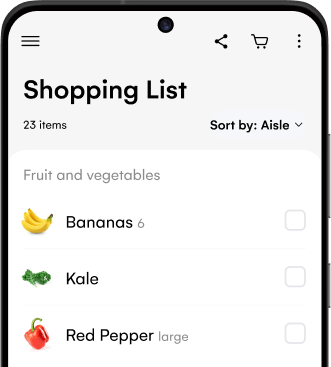Estimated reading time: 6 minutes
Over the years, carbohydrates have been vilified and held accountable for unwanted weight gain. But carbohydrates are essential for the human body to function optimally. Carbohydrates provide fuel for your muscles and brain during exercise and may help improve your athletic performance.
Like many aspects of nutrition, there are some individual factors at play with regards to how many carbs you need to consume. However, consuming adequate carbohydrates (although not overconsuming them) for your chosen sport is directly linked with your performance outcome. Ever tried to do a long run after only eating an omelet for breakfast? The chances are, you probably found it difficult. Restricting carbohydrates can have a detrimental effect on your athletic performance.
What are carbohydrates?
Your body relies on the three main macronutrients to function optimally. Carbohydrates are one of the macronutrients, alongside protein and fat.
So what are carbohydrates? Think of all the stodgy and tasty foods like cake and chips. The likelihood is they are high in carbohydrates. This is one of the main reasons carbohydrates have a bad reputation – but carbs don’t have to be refined options. Other carbohydrate-rich foods include potatoes and starchy vegetables, whole grains, and oats.
Carbohydrates are essential for your body to function healthily. Why they so important? They have 4 key responsibilities:
- To provide instant energy in the form of glucose to the central nervous system, red blood cells, and brain.
- Glucose is stored as glycogen in your muscles and liver and used when energy levels are depleted.
- Carbohydrate fiber aids digestion.
- They help satiate you.
Should You Increase Your Carbs?
Are you getting enough carbohydrates? It’s easy to make a snap decision (e.g. ‘I eat toast every day so definitely get enough carbs.’) but many of us don’t actually know how many carbohydrates we should be consuming.
The Mayo Clinic suggests that If you exercise moderately per day, you should consume between 3 and 5 grams of carbohydrates per kilogram of body weight. If you exercise for over an hour a day, you may need to increase this closer to 10 grams of carbohydrates.
While carbohydrate consumption is encouraged, it’s essential to find the right balance of protein, fat, and carbs for you. We’d love any excuse to eat pasta every night but sadly, it won’t make you into Usain Bolt.
Too many carbohydrates can lead to high blood sugar and increase your risk of diabetes. Inadequate carbohydrates can lead to low blood sugar, which is associated with drowsiness, blurred vision, and the inability to concentrate. You flourish when you consume the right amount of carbohydrates for your activity level.

The impact of carbohydrates on athletic performance
Now you know what carbohydrates are and what quantities to consume them in, it’s time to learn how carbohydrates impact your athletic performance.
It helps to break down the essential role of carbohydrates in athletic performance into 3 categories.
1. Before exercise
If you plan on exercising for over an hour, scientific research suggests consuming 1 – 4 grams of carbohydrates per kilogram of body weight.
A bowl of porridge with a banana and a mug of coffee is a popular breakfast for many athletes. This type of meal has adequate carbohydrates to fuel a morning exercise routine.
You may have heard of carb-loading as a technique many endurance athletes utilize the week before a big race. Cyclists and long distance runners will often tuck into a big bowl of pasta or rice the day before an event…right? Well, yes and no.
Your body has limited glycogen storage capabilities. Generally, it can only store enough glycogen for between 90 -120 minutes of exercise. The idea of carb-loading is to maximize the glycogen stores. The American College of Sports Medicine supports efficient and effective carb-loading. This method requires you to take in 10 – 12 grams of carbohydrates per kilogram of body weight daily for 2 – 3 days before race day.
Optimum carb loading ensures your glycogen stores are full and ready for peak performance. Exercising on low glycogen stores can make you feel sluggish and underpowered.
2. During exercise
You already know that your body uses glycogen as energy, which you store in your liver and muscles. Have you ever wondered what happens once the storage is empty?
Given the global average marathon time sits at 4 hours and 21 minutes and we know glycogen stores only last a couple of hours, it makes sense glycogen stores alone can not be relied on to help fuel athletes to the finish line. So if they’re running on empty, what’s happening? This limited glycogen storage is where energy consumption during exercise comes into play. You might have seen runners using energy gels or tennis players having a bite of banana – this is to help keep the energy tank and glycogen levels topped up.
Research suggests athletes consume 60g of carbohydrates per hour if they exercise for over 2 hours. Ideally, athletes would take 90g of carbohydrates, but once you get to this quantity, you may experience gut issues. A way to mitigate these gut issues is to practice fueling during training runs to help ‘teach’ your gut how to handle it, just as you would train your muscles to run.
The whole purpose of carbohydrate consumption during exercise is to ensure your muscles have the energy to keep working optimally. If you fail to take in carbohydrates, your body will rely on fat energy stores. Fat takes longer to break down, meaning athletic performance will deteriorate without carbohydrate consumption.
While gels and sports bars are popular fuelling options during exercise, you can also take in everyday foods, such as peanut butter sandwiches, fig rolls, bananas, and flapjacks if your stomach tolerates this.
The choice of carbohydrates during exercise is a personal preference; it’s all about trial and error and finding what works best for you.

3. After exercise
The recovery process begins as soon as you cease to exercise. Given your glycogen stores will likely be depleted, it is essential to fill these up again to aid tissue repair and prepare your body for its next exercise session.
An optimum way to fuel post-exercise is through a protein and carbohydrate shake. The ratio of protein to carbohydrate is recommended as 3:1. Ideally, you want to consume this as 40g of protein to 120g of carbohydrate.
A word of warning, persistent inadequate fueling before, during, and after exercise can lead to relative energy deficiency in sports (RED-S). RED-S is still a relatively new term that is not yet fully understood. Its symptoms can start similar to a cold but, if left untreated, can cause fatigue, burnout, and significant deterioration of athletic performance.
Wrapping up
The lessons learned here are straightforward – don’t scrimp on the carbs! Fuel your body with the same respect that you would a supercar. It’s time to put away the archaic idea that carbohydrates are bad.
Carbohydrates are essential for helping you achieve optimum performance. If you adjust your fuelling to coincide with these recommendations, you will likely see significant improvements in your athletic performance.
Words by Ali Hall



